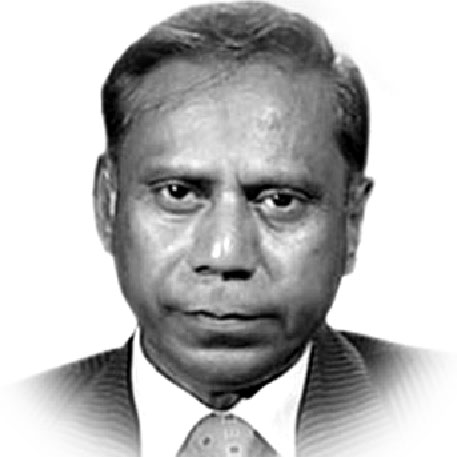Sultan M Hali
AFGHAN President Ashraf Ghani signed a political agreement with former Chief Executive Officer Abdullah Abdullah on May 17. The latter will lead the High Council of National Reconciliation with his team joining the cabinet, putting an end to the instability since the presidential election result came out. Bearing in mind the interests of the country and national interests, the Afghan leaders signed a political agreement after reaching consensus through consultation. This is a blessing for Afghanistan as a nation. It is hoped that all parties in Afghanistan will take this as an opportunity to work together for an early launch of intra-Afghan talks and to advance the Afghan-led and Afghan-owned peace and reconciliation process so as to achieve stability, peace, solidarity and development of the nation.
The power-sharing deal marks a possible end to months of post-presidential-election turmoil and years of political tug of war between the two camps. While Ghani will remain the President, Abdullah will assume the de-facto number two position, will recommend candidates for 50 percent of the Cabinet, including key ministries, and will help devise the mechanism for the appointment of Governors. Abdullah will also lead the peace process and future negotiations with the Taliban as the head of a new High Council of National Reconciliation. The Council will guide the team of Afghans negotiating with the Taliban, create national and international consensus on the peace process, and work toward getting continuing support and financial assistance from the international community after a hoped-for future deal with Taliban. Meanwhile, a powerful Uzbek warlord and former Vice President General Abdul Rashid Dostum has been granted the rank of a Marshall, the highest military rank in the country, through a presidential decree.
In 2016, a political rival accused Dostum, who has a history of alleged human rights abuses, of beating him and ordering his sexual assault. Dostum fled to Turkey for a year before returning to become Abdullah’s running mate in the presidential elections. Ghani and Abdullah were also chief rivals in the previous presidential elections of 2014, causing a similar turmoil and forcing the then Secretary of State John Kerry to step in and help negotiate a unity government with Ghani as president and Abdullah as Chief Executive. However, the five years of unity government were marred by constant rivalry between the two and their supporters, impacting national decision making and governance. The two sides have finally come to an agreement under intense pressure from the United States which seemed to be getting wary that the machinations in Kabul might derail a peace-building deal it had signed with the Taliban in February.
In sheer exasperation, in March, Secretary of State Mike Pompeo expressed angst towards Afghanistan over the failure of Ghani and Abdullah to reach a compromise to form an inclusive government. The U.S. also reduced its aid to Afghanistan by $1 billion in 2020 and threatened to take away another billion if the two sides did not come to terms. The deal will usher political stability to the country and strengthen the position of their team during future negotiations with the Taliban since earlier, the Afghan Government was perceived to be weak due to divisions between various political factions. The negotiations with the Taliban were expected to start in March, ten days after the insurgent group signed a deal with the US. They have been constantly delayed, mostly due to the delay in release of Taliban prisoners that the militant group considers a prerequisite to the start of talks.
Ghani’s government was furious over the US pledging the release of prisoners to Taliban as it reduces its leverage in its own negotiations with the militant group. Ghani wanted the Taliban to announce a cease-fire before the prisoners were released. While the political standoff may have been resolved, peace in Afghanistan remains a pipe dream. In the opinion of the US, the Islamic State was behind deadly attacks on a maternity clinic and a funeral earlier last week in Afghanistan. A car bomb attack on an intelligence base in central Ghazni province in Afghanistan early Monday morning killed at least seven members of the security forces and wounded 40 others. Dr. Baser Ramaki, head of the Ghazni provincial hospital that received both the bodies and the wounded, confirmed the number to media. Provincial officials say the number of casualties may increase.
Tariq Aryan, a spokesman for the Ministry of Interior confirmed the attack. Ahmad Khan Serat, a spokesman for Ghazni provincial police headquarters stated that the bomb targeted the 703 contingent of the National Directorate of Security, Afghanistan’s intelligence agency. Taking responsibility for the attack, Taliban spokesman Zabiullah Mujahid said in a statement the attack was in response to the enemy declaring war as well as attacks on civilians in areas under Taliban control. He named the suicide bomber as Zayd Kandahari and said the attacker used a Humvee. Senior American officials, including Zalmay Khalilzad, the special representative charged with helping to end the war in Afghanistan, said the attacks were carried out by the local chapter of Islamic State group, but Saleh said the Taliban had close links with IS Khorasan, as the local chapter is called. In a separate attack Monday morning, Taliban fighters ambushed and killed seven members of a local anti-Taliban militia in Takhar province. Khalil Aser, a spokesman for the Takhar police confirmed the attack in the Yangi Qala district and said at least two militiamen were wounded as well.
—The writer is retired PAF Group Captain and a TV talk show host.










